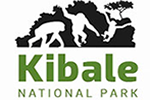Agrotourism in Kibale National Park: When it comes to unique experiences, Kibale National Park a renowned primate capital of the world never disappoints. Uganda safaris in Kibale National Park offer more than primate encounters. On a visit to this lush tropical forest park, it is possible for tourists on Uganda safari tour to also indulge in Agrotourism experiences also popularly called Agritourism.
What is Agrotourism?
Agrotourism refers to form of commercial enterprise which connects production or processing with tourism to attract tourists onto a farm, ranch or any other agricultural business for the purpose of entertaining or educating the them while generating income for the farm/business owner. It is also understood by many as “Farm stays.”
On Agrotourism, tourists engage in different activities. It encompasses several things including garden tours, demonstration farms, corn mazes, purchasing produce directly from a farm stand, picking fruits, feeding animals or rural bed and breakfast on a farm, to mention but a few. The surrounding local communities at Kibale practice subsistence farming and
Significance of Agrotourism in Kibale
Agrotourism in Kibale allows visitors or travelers on safari in Uganda to incorporate tourism and agricultural/farm experiences which in return generates financial, educational and social benefits not only to visitors but to producers and local communities too.
Agrotourism provides producers a chance to generate extra income and serves best as direct marketing avenue to consumers. In the long run, it enhances the tourism sector by increasing the number of tourists visiting the area and extends their stay in the destination.
Local communities on the other hand have potential to expand their local tax bases and create new employment opportunities. Besides, it is a unique educational experience offering the actual farm operations.
Farming in Kibale
Kibale National Park is located in Kabarole, a district where locals mainly grow crops such as soybeans, matooke, cassava, sweet potatoes, groundnuts, tomatoes, cabbages, tea, sorghum, corn, beans, coffee, pineapple, etc. They also rear livestock, engage in commercial fishing and this is carried out on the different Crater Lakes with Nkejje being the main fish species harvested. Fishing is also done in the various wetland areas and for in-depth tea tour experience, don’t miss to visit Mpanga G.T.F.L.
On tea tours in Mpanga, having a taste of the tea produced here is part of the experience awaiting you. Mpanga teas are carefully produced and harvested right from the gardens with hygiene standards highly observed.
Kibale National Park
Kibale National Park is a home to one Africa’s lush tropical forest where 13 primate species all live plus 375 bird species making it an important destination worth visiting on Uganda safari. The park was gazetted in 1993 and its border areas spread up to only 795sq.kms with elevation range of 1100-1600m.
Kibale is a stronghold of 1500 chimpanzees with over 4 communities already undergone habituation making it a treasured chimpanzee tracking safari destination in East Africa. It is also the best spot to enjoy a long day chimpanzee habituation experience (CHEX) while on Uganda safari. On chimp trek or habituation, there are lots of other primates to encounter including blue monkeys, red tailed monkeys, colobus monkeys, vervet, baboons, mangabeys, bush babies, pottos, etc.
If you are interested in birding safaris, Kibale is still the right place to be. The park contains up to 375 bird species with the most sought-for birds including the Green breasted pitta, Great blue turacos, lowland masked apalis, red woodland,
Little greenbul, black bee-eaters, yellow spotted barbets, scaly breasted illadopsis, Nahan’s francolins, Cassin’s spine tail, white napped pigeons, white headed wood hoopoe, yellow throated nicator, blue headed bee-eaters, etc.
